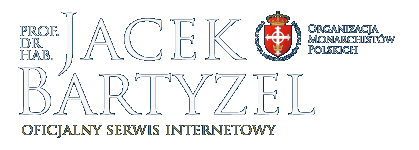Jesteś tutaj: prof. Jacek Bartyzel » Eseje i artykuły naukowe » Spanish Carlism as the popular, counter-revolutionary movement
Spanish Carlism as the popular, counter-revolutionary movement
Jacek Bartyzel

Characteristics of being popular and counter-revolutionary are well established in the sociopolitical phenomenon of the Spanish Carlism. Claiming that counter-revolution is popular can be understood too simply, narrowly or completely falsely, especially if it is meant in too “class” (in the Marxist sense of this term) or “purely plebeian” way.
Therefore, the paper analyzes, verifies and—where necessary—refutes these common interpretations. Consequently I suggest to reject the groundless claim that uprising defending Don Carlos’ rights to the throne, which have broken out in 1833, was a kind of “peasants’ rebellion” and “coalition of the disadvantaged and marginalized people”. Carlism represented a wide cross-section of society, including all traditional sectors and large part of the aristocratic, ecclesiastical and intellectual elite. Sociological pluralism of carlism contrasted with the “monoculture” of liberal camp, whose social base was limited at the time to upper, wealthier and urban classes: the bourgeoisie, freelance professions and that part of aristocracy, which has made a pact with coming to power liberals. Therefore it was not only a rural movement. It was not the effect of the psychological and social shock of the Bourgeois Revolution, but a reflection of the confrontation between diversified structure of the Spanish society and ruling minority of Enlightenment and liberal burgesses. Term ‘popular’ used with reference to the Carlist counter-revolution is justified, but not in the meaning of ‘purely plebeian’ or class, but ‘nationwide’, ‘universal’, ‘classwide’ or polemically anti-oligarchical. Both ideological and sociological aspects of the Carlism can be described as a defence of the whole traditional style of life, including all parts of the Carlist motto: Catholic (Dios), national Spanish (Patria), traditionalist, self-government (Fueros) and legitimist, monarchical (Rey), which are harmonious and inseparable.
Full text in: Oblicza ruchów chłopskich i agrarnych, ed. by A. Indraszczyk and A. Wielomski, Muzeum Historii Polskiego Ruchu Ludowego, Warszawa 2013, pp. 33-50.

